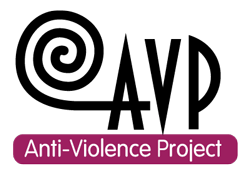(In)visibilities: Violence Against Women and The Role of Storytelling
This year marks the 24th Anniversary of the shooting at L’École Polytechnique in Montreal. For those unfamiliar: http://en.wikipedia.org/wiki/%C3%89cole_Polytechnique_massacre
This event triggered a national outcry and broke silence surrounding some of the types of violence perpetrated against women. Many mainstream discourses were challenged and Lépine’s actions began to be talked about as a result of systemic sexism, as opposed to the work of someone “deranged”; a discourse that demonizes the person committing the act, enabling the underlying causes to remain invisible and thereby keeping the power (i.e., patriarchy) that fuelled it, intact.
Last year I did my undergraduate thesis on the ability of Post-Secondary education to transform the self-narratives of working class female-identified people. I talked to other folks who felt like their education actually enabled them to talk about themselves differently, and what this might mean for their identity. Each interview brought a new voice and a particular experience that belonged solely to the person speaking. At the same time, because of some of our shared identities, I felt profoundly affected by the experiences of the women I talked to. I could see myself in some (but most definitely not all) of their stories. Through my thesis work I began to explicitly understand the importance of stories. They are how we come to know our world and they determine how we are situated within it.
The reason I chose to write something about the annual memorialization of those who were killed twenty-four years ago rests in how I am able to see bodies that look like mine remembered and honoured each year, when the story of Polytechnique is told. My whiteness, my education, and the ways that my gender is most often read are privileges that I share with the women who were murdered that day. Each year when this event takes place I’m told that bodies like mine matter and that they’re worth protecting, but living with a feminist lens is a constant negotiation that pushes, pulls, empowers, and demeans. It fights violence and it can perpetuate it, and when I’m faced with events such as this, that work within the framework of what many call feminism, I can’t help but stand there and say “Yeah, but…”
So yeah, this event is important and has done more than I probably understand to further action against gender-based violence, but what about the stories that aren’t told at these events? What about the bodies that aren’t and will continue to not be protected, or honoured, or remembered? I can’t sit here and say I’m fighting violence against “women” when bodies, no matter what or how many characteristics they may have in common, do not have a shared experience and face violence in different ways and in varying degrees.
When at least six hundred Indigenous women in Canada have gone missing or been murdered since 1990 and the people responsible have no names and no faces, it becomes difficult to tell myself this event has been made for them. When state statistics about marginalized communities are used in mainstream discourse, how does this event empower those within them to challenge the violence perpetuated by the state in these communities in the first place? When women have to choose between protection against domestic violence and protection against deportation, in what way is the memorialization of bodies like mine helping them? When, fuelled by racism and privilege, women are committing acts of violence against other women, how are we supposed to heal together?
I often see December 6th events enacted by telling a story, and as I begin to become more conscious of the ways that stories can determine representation I suppose I just want to say how important I’m finding it to attend and contribute to events that value and make space for the stories of those who are not represented in the story of the “Montreal Massacre”. Part of recognizing privilege is stepping down and acknowledging all that I, and everyone else, can learn from those who occupy identities that experience violence in ways that are often silenced by the most powerful institutions in our society.
**If interested, an event is happening TONIGHT to remember, honour and listen to many people affected by gender based violence:
https://www.facebook.com/events/228047490688909/
details:
“Ending Gender Violence: Poetry and Other Performances”
Date: TONIGHT Friday, December 6
Time: 5 – 8 PM
Location: Victoria Multicultural Centre, 1415 Broad Street, Coast Salish Territories
Liza is a community member volunteer at the Anti Violence Project.



